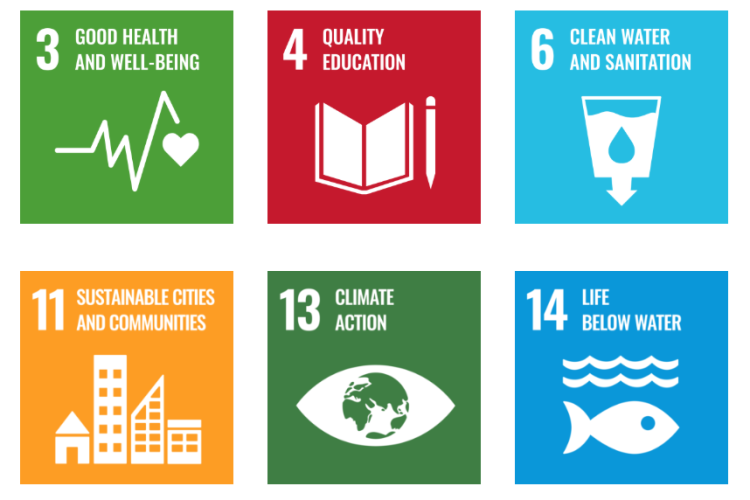A decade ago, few in York Region were concerned about microplastics in their water. Today, these tiny particles are turning up in rivers and even in treated drinking water, raising new questions for municipal water managers.
Pharmaceuticals are also slipping through wastewater plants, while heavier rains are pushing flood systems to their limits.
York University's One WATER Institute is at the centre of the response. Acting as a trans-disciplinary hub, the institute connects researchers, students and municipal staff to address the region's most urgent water challenges.
"We focus on research that matches what municipalities actually need, from detecting contaminants to building flood resilience," says Farshad Dabbaghi, research associate at One WATER.

The strategic vision of One WATER encompasses many of the 17 Sustainable Development Goals of the United Nations.
Collaboration is central to One WATER's approach. Research themes are co-created with municipal partners during round-table sessions, ensuring that priorities - from flood mitigation to watershed health - reflect real community needs. "We build partnerships through joint proposals, lab visits and working groups," Dabbaghi says.
Earlier this year, One WATER convened 11 research clusters with York Region staff to focus on operational challenges including urban flood modelling, ultraviolet disinfection, climate resilience, nutrient recovery and the removal of emerging contaminants such as pharmaceuticals and microplastics. Through faculty presentations and roundtable discussions, this work is already informing policy, guiding infrastructure upgrades and helping to design pilot projects for local water systems.
Graduate students across York University are driving much of this progress. At the Lassonde School of Engineering, Pratishtha Khurana explores how pharmaceutical residues - antibiotics and antidepressants among them - persist in treated wastewater, shaping new strategies to protect public health. In the same spirit of inquiry, Gaurav Bhardwaj investigates the impact of microplastics on the microbial communities essential to wastewater treatment, providing practical guidance for upgrading treatment plants.
York researchers are also tackling water challenges in some of Canada's most remote communities. In Cambridge Bay, Nunavut, York PhD candidate Caroline Duncan recently completed a multi-year, community-based study on water safety, combining quantitative monitoring with local engagement. Her findings have informed subsequent research on microbial water quality, microplastics and climate impacts in northern communities, now being advanced by York alumni Audrey Tam (MASc), Élan Chalmers (MASc), Mohammed Ibraheem (MASc) and Victoria Carroll (PhD).
In Ontario, PhD candidate Michael De Santi, MASc candidate Maranath Hormiz and PhD graduate Ahmed AlSayed are applying machine learning to boost water system efficiency for the Ontario Clean Water Agency, working under the guidance of Professors Usman Khan and Stephanie Gora.
By aligning academic innovation with municipal needs, One WATER equips communities to navigate water complexities with science-based solutions.
"We want to help municipalities manage complex water issues with solutions they can use," Dabbaghi says. "That's the difference York can make."
This story was originally featured in YFile, York University's community newsletter












